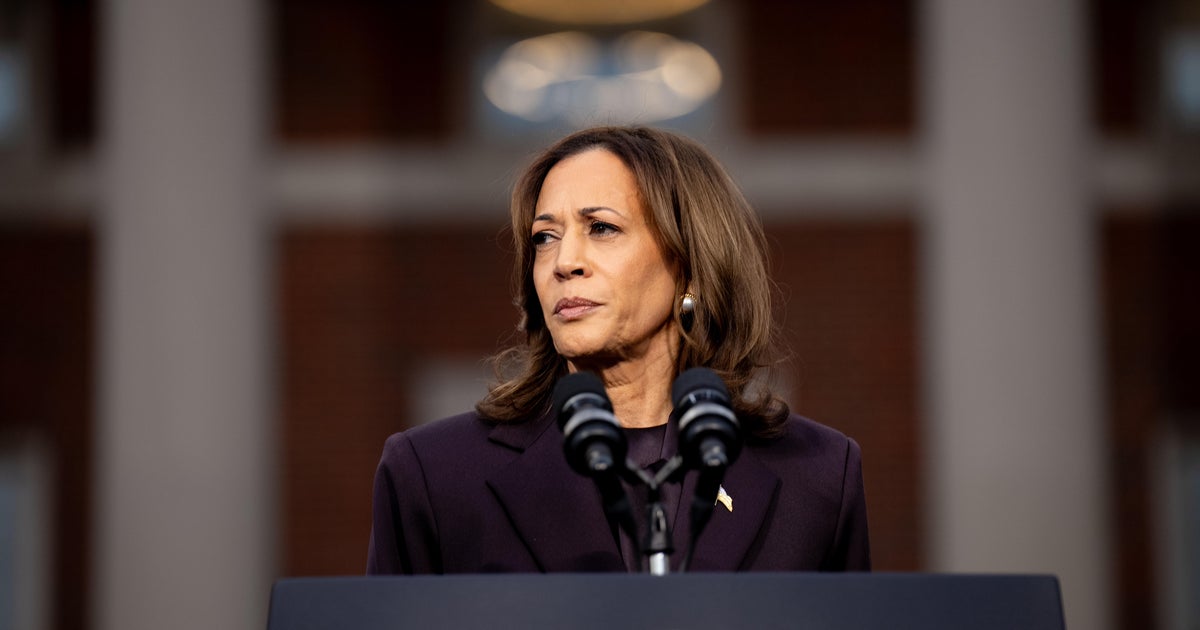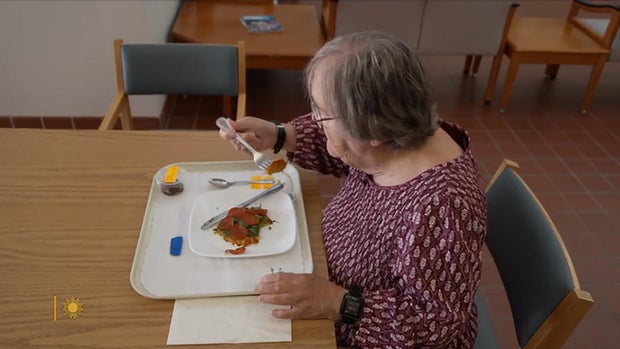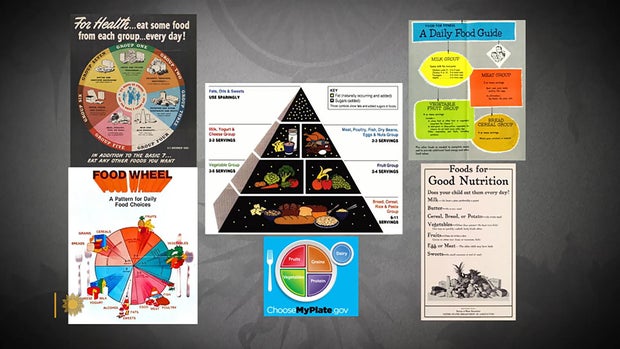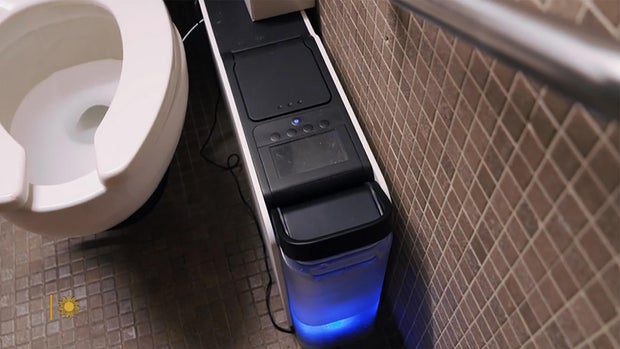CBS News
VP contenders to interview with Harris Sunday

Presumptive Democratic nominee Kamala Harris is meeting Sunday with the top contenders to be her running mate, and among them are Gov. Josh Shapiro of Pennsylvania and Gov. Mark Walz of Minnesota.
Both governors are traveling to Washington for an interview with Harris, according to multiple sources familiar with the plans. The Washington Post first reported the interviews with Harris’ top VP contenders.
However, Harris is also having formal interviews with candidates who have not been confirmed in the media, both in person and virtually, according to a source familiar with the process. Harris herself had a virtual meeting with Mr. Biden when he was interviewing VP candidates. Although that interview was during the pandemic, other candidates had in-person interviews with him at the time.
Shapiro is one of the nation’s most popular governors and has a 60% approval rating, according to a recent Quinnipiac poll. He has won statewide office three times — twice as state attorney general and once as governor. As Pennsylvania’s top law enforcement official, he oversaw the investigation of widespread sexual abuse perpetrated by hundreds of priests and a decades-long cover-up by the Catholic church.
Walz, a former congressman, is serving his second term as governor and also has high approval ratings. With Democrats controlling both chambers of the state legislature during his second term, Walz has enacted a number of progressive priorities, including the protection of abortion access and gender-affirming health care, legalizing recreational marijuana, restricting gun access, providing free school meals to all kids and expanding paid family leave.
The Associated Press reported that Harris is also interviewing Govs. Andy Beshear of Kentucky and J.B. Pritzker of Illinois, Sen. Mark Kelly of Arizona and Transportation Secretary Pete Buttigieg, citing two people with knowledge of Harris’ selection process.
President Biden said Friday he has spoken with Harris about her running mate, but when pressed further on the qualities she should look for in a candidate, he responded, “I’ll let her work that out.”
Harris is expected to name her vice presidential pick by Tuesday. She and her running mate will be campaigning together in battleground states this week.
Harris has received a majority of the pledged and automatic delegates in the electronic roll call to secure the Democratic nomination, but voting remains open until Monday.
Melissa Quinn, Nidia Cavazos and Caitlin Yilek contributed to this report.
CBS News
A study to devise nutritional guidance just for you

It’s been said the best meals come from the heart, not from a recipe book. But at this USDA kitchen, there’s no pinch of this, dash of that, no dollops or smidgens of anything. Here, nutritionists in white coats painstakingly measure every single ingredient, down to the tenth of a gram.
Sheryn Stover is expected to eat every crumb of her pizza; any tiny morsels she does miss go back to the kitchen, where they’re scrutinized like evidence of some dietary crime.
Stover (or participant #8180, as she’s known) is one of some 10,000 volunteers enrolled in a $170 million nutrition study run by the National Institutes of Health. “At 78, not many people get to do studies that are going to affect a great amount of people, and I thought this was a great opportunity to do that,” she said.
CBS News
It’s called the Nutrition for Precision Health Study. “When I tell people about the study, the reaction usually is, ‘Oh, that’s so cool, can I do it?'” said coordinator Holly Nicastro.
She explained just what “precise” precisely means: “Precision nutrition means tailoring nutrition or dietary guidance to the individual.”
The government has long offered guidelines to help us eat better. In the 1940s we had the “Basic 7.” In the ’50s, the “Basic 4.” We’ve had the “Food Wheel,” the “Food Pyramid,” and currently, “My Plate.”
CBS News
They’re all well-intentioned, except they’re all based on averages – what works best for most people, most of the time. But according to Nicastro, there is no one best way to eat. “We know from virtually every nutrition study ever conducted, we have inner individual variability,” she said. “That means we have some people that are going to respond, and some people that aren’t. There’s no one-size-fits-all.”
The study’s participants, like Stover, are all being drawn from another NIH study program called All Of Us, a massive undertaking to create a database of at least a million people who are volunteering everything from their electronic health records to their DNA. It was from that All of Us research that Stover discovered she has the gene that makes some foods taste bitter, which could explain why she ate more of one kind of food than another.
Professor Sai Das, who oversees the study at Tufts University, says the goal of precision nutrition is to drill down even deeper into those individual differences. “We’re moving away from just saying everybody go do this, to being able to say, ‘Okay, if you have X, Y and Z characteristics, then you’re more likely to respond to a diet, and somebody else that has A, B and C characteristics will be responding to the diet differently,'” Das said.
It’s a big commitment for Stover, who is one of 150 people being paid to live at a handful of test sites around the country for six weeks – two weeks at a time. It’s so precise she can’t even go for a walk without a dietary chaperone. “Well, you could stop and buy candy … God forbid, you can’t do that!” she laughed.
While she’s here, everything from her resting metabolic rate, her body fat percentage, her bone mineral content, even the microbes in her gut (digested by a machine that essentially is a smart toilet paper reading device) are being analyzed for how hers may differ from someone else’s.
Nicastro said, “We really think that what’s going on in your poop is going to tell us a lot of information about your health and how you respond to food.”
CBS News
Stover says she doesn’t mind, except for the odd sounds the machine makes. While she is a live-in participant, thousands of others are participating from their homes, where electronic wearables track all kinds of health data, including special glasses that record everything they eat, activated when someone starts chewing. Artificial intelligence can then be used to determine not only which foods the person is eating, but how many calories are consumed.
This study is expected to be wrapped up by 2027, and because of it, we may indeed know not only to eat more fruits and vegetables, but what combination of foods is really best for us. The question that even Holly Nicastro can’t answer is, will we listen? “You can lead a horse to water; you can’t make them drink,” she said. “We can tailor the interventions all day. But one hypothesis I have is that if the guidance is tailored to the individual, it’s going to make that individual more likely to follow it, because this is for me, this was designed for me.”
For more info:
Story produced by Mark Hudspeth. Editor: Ed Givnish.
“Sunday Morning” 2024 “Food Issue” recipe index
Delicious menu suggestions from top chefs, cookbook authors, food writers, restaurateurs, and the editors of Food & Wine magazine.
CBS News
A new generation of shopping cart, with GPS and AI

Watch CBS News
Be the first to know
Get browser notifications for breaking news, live events, and exclusive reporting.
CBS News
“All hands on deck” for Idaho’s annual potato harvest

Watch CBS News
Be the first to know
Get browser notifications for breaking news, live events, and exclusive reporting.












